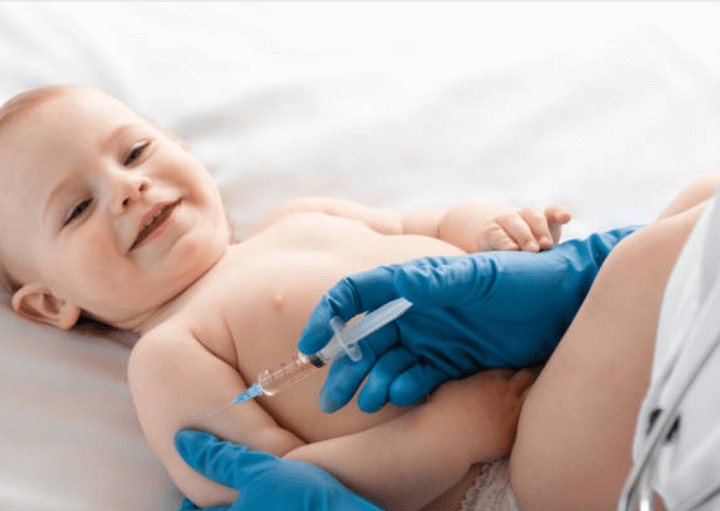As a parent, one of the most important things you can do to protect the health of your baby is to get them vaccinated. However, after getting vaccinated, parents may wonder how long they should let their baby sleep. In this article, we will explore the answer to the question “How long should I let my baby sleep after vaccinations” and provide a guide to help parents care for their baby after vaccinations.
How Long Should I Let My Baby Sleep After Vaccinations?
By reading this article, parents will learn:
- The common side effects of vaccinations and why they are normal
- The importance of sleep for babies after vaccinations and how it helps the body recover
- Guidelines for how long to let babies sleep after vaccinations based on age and vaccine type, as well as general guidelines and tips for helping babies sleep after vaccinations
How Vaccines Affect Babies
Vaccinations can cause some discomfort for babies, including fever, fussiness, and sleepiness. These side effects are a normal part of the body’s response to the vaccine and indicate that the vaccine is working. Vaccines help the immune system build immunity to the disease they protect against. After vaccination, the body is under physical stress, and sleep helps babies’ bodies heal and regenerate.

The Importance of Sleep for Babies
Sleep is crucial for the growth and development of babies. It plays a vital role in helping their bodies heal and regenerate, which is especially important after vaccinations. Sleep helps babies’ bodies recover from the physical stress caused by the shots.
How Long Should I Let My Baby Sleep After Vaccinations?
The amount of sleep a baby needs after vaccinations depends on their age and the type of vaccine they receive. Usually, it’s recommended that babies get plenty of rest and sleep after vaccinations. For babies under six months old, they may need more sleep than usual for the first 24-48 hours after their vaccinations.
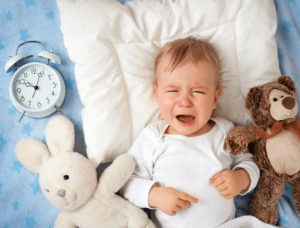
This may mean letting them sleep for longer periods during the day and overnight. For babies over six months old, they may need extra sleep for a day or two after their vaccinations, but generally, they can return to their normal sleep schedule within a few days.
Read more: >> How to put a baby to sleep quickly after 40 seconds
Guideline for Letting Babies Sleep After Vaccinations
While the amount of sleep a baby needs after vaccinations will depend on their age and the type of vaccine they receive, there are some general guidelines parents can follow. For naps, it’s a good idea to let the baby sleep for two to three hours. For nighttime sleep, it’s recommended that the baby get their usual amount of sleep, which may be longer than usual for the first 24-48 hours after their vaccinations.
Addressing Common Concerns About Letting Babies Sleep After Vaccinations
[wptb id=450]
Some parents may be concerned about letting their baby sleep after vaccinations, particularly if they’re worried about their baby’s breathing or want to monitor their temperature. However, it’s important to remember that sleep is important for a baby’s recovery after vaccinations, and it’s okay to let them sleep. Parents can monitor their baby’s breathing and temperature by using a baby monitor or checking on them periodically.
Read more: >> Can babies sense pregnancy before you know
Tips for Helping Babies Sleep After Vaccinations
There are some things parents can do to help their baby sleep better after vaccinations. For example, parents can give their baby a warm bath before bedtime to help them relax, use a cool compress if they have a fever, and make sure they have a quiet, dark room to sleep in. It’s also important to establish a calming bedtime routine to help the baby feel more relaxed and comfortable before bedtime.
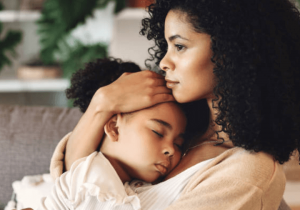
When to Be Concerned About a Baby’s Sleep After Vaccinations
While it’s normal for babies to be sleepier than usual after their vaccinations, some signs may indicate a problem. If a baby is sleeping excessively and is difficult to wake up, or if they’re not sleeping at all, it’s important to contact a doctor. These could be signs of a more serious problem, and a doctor can help determine the best course of action.
Read more: >> 11 things unborn baby can do in the womb
Should I let baby sleep after vaccines?
After getting vaccinated, babies may feel sleepy or fussy. It is important to let them rest and recover after the shots. According to a study, babies who sleep more after vaccinations have a better immune response to the vaccine. So, it is recommended to let babies sleep after vaccines
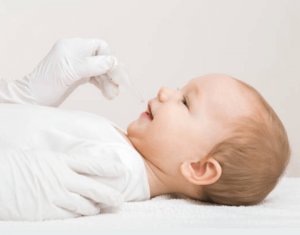
Prolonged sleepiness or lethargy may be a sign of a serious reaction to the vaccine. Parents should monitor their baby’s behavior and contact their healthcare provider if they notice any unusual symptoms.
There are other ways to comfort and soothe them after vaccines. Swaddling, shushing, and swinging can help calm the baby. Breastfeeding can also provide comfort and hydration to the baby. Skin-to-skin contact with the mother can help regulate the baby’s body temperature and breathing.
How long can baby be unsettled after immunization
It is common for babies to experience some side effects after receiving vaccinations. These side effects can include fever, fussiness, and soreness at the injection site. Parents often wonder how long their baby may be unsettled after immunization.
According to the Centers for Disease Control and Prevention (CDC), most vaccine side effects are mild and go away on their own within a few days. However, some babies may experience more significant side effects that can last longer.
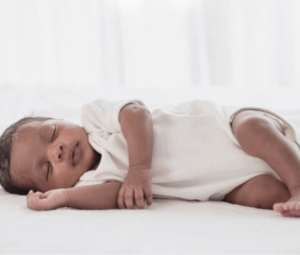
For example, some babies may experience a fever after receiving certain vaccines. The CDC recommends that parents give their baby a non-aspirin pain reliever such as acetaminophen (age 2 months and older) or ibuprofen (6 months and older) to help with residual achiness and low-grade fever. It is important to ask the doctor about this before leaving the office.
In general, the side effects of vaccines should resolve within a few days. However, if a baby experiences a more severe reaction, such as a high fever or difficulty breathing, parents should contact their doctor right away. It is also important to keep an eye on the baby for any signs of an allergic reaction, such as hives or difficulty breathing.
Additional Resources for Parents
If parents are looking for more information on vaccinations and how to care for their baby after shots, there are plenty of resources available. The Centers for Disease Control and Prevention (CDC) has a wealth of information on vaccinations, including what to expect after a baby gets vaccinated. Parents can also consult with their pediatrician or other healthcare professionals for more guidance and support.
FAQs
[sp_easyaccordion id=”451″]
Conclusion
In conclusion, it’s important to let a baby sleep after vaccinations to help their body recover from the physical stress of the shots. The amount of sleep a baby needs after vaccinations will depend on their age and the type of vaccine they receive, but generally, it’s recommended that they get plenty of rest and sleep. Sleep is crucial for a baby’s growth and development, and it’s okay to let them sleep after their vaccinations. If parents have any concerns or questions, they should contact their doctor or other healthcare professionals for guidance and support.
